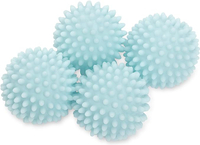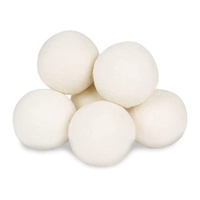Why you should be using dryer balls – 5 reasons the pros love these reusable laundry saviors
Not only do they save you money, but they could be saving your clothing too, experts claim
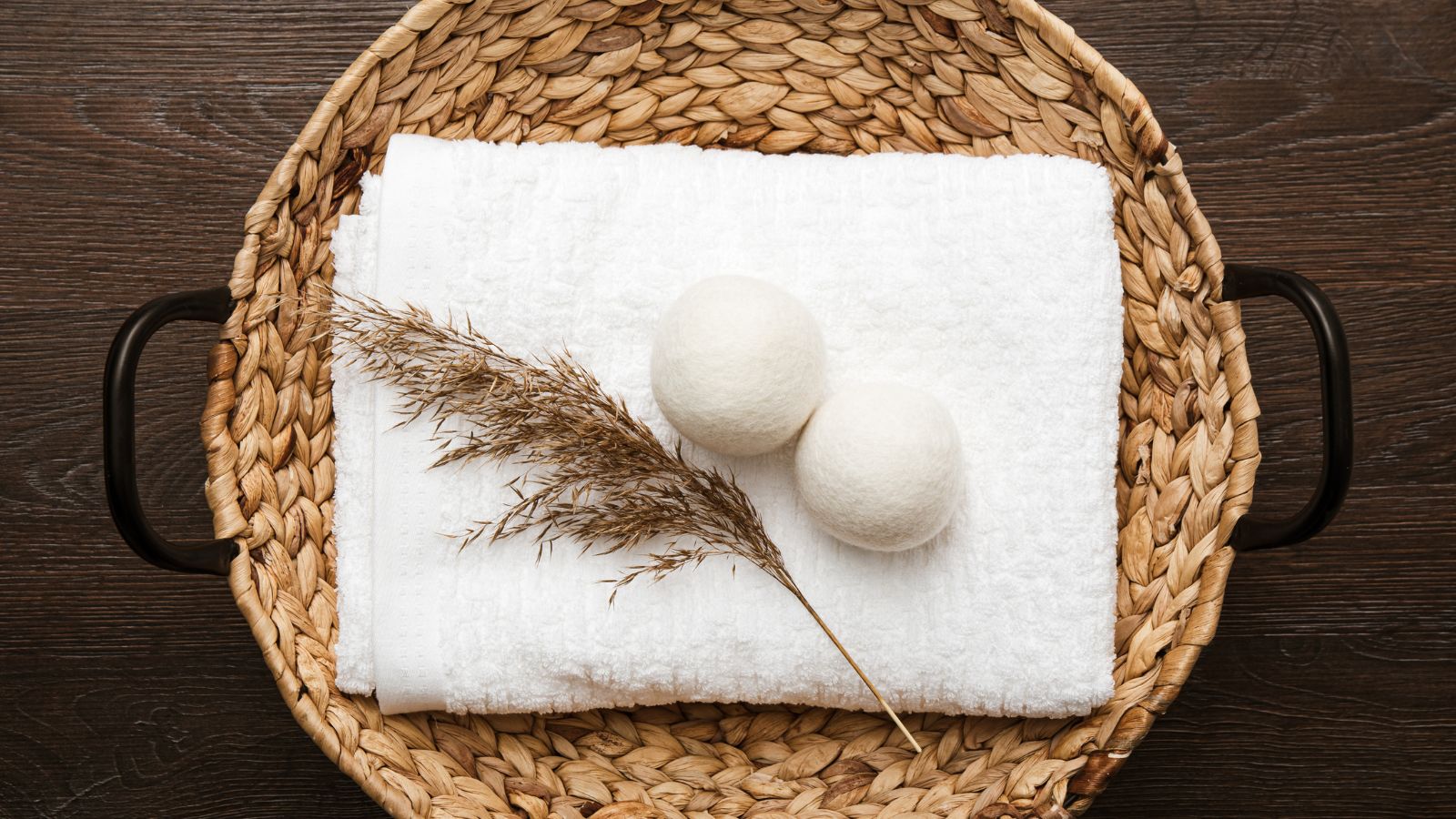

Most of us develop a laundry routine one day and more or less stick to it as we get older, but laundry experts are urging us to switch it up and add dryer balls to our laundry loads – but why? And what do they actually do?
Although when doing laundry there are plenty of things to use instead of dryer sheets, dryer balls – especially wool dryer balls – are on the rise thanks to their sustainability. But they could offer more benefits to your clothing than just saving you a little money, including cutting down your ironing.
Here is why you should be using dryer balls in all your laundry loads, according to the people in the know.
Why you should be using dryer balls
If you have never heard of dryer balls, then it is important to know that there are a few different options to choose from depending on what you want from a laundry cycle. The most common are plastic dryer balls, often brightly colored with little rubber spikes covering the surface. These are reusable, fun-looking, and a great vegan option if you are looking to go completely green on your laundry routine.
Plastic Dryer Balls | $7.79 at Amazon
These plastic dryer balls are highly rated by users on Amazon and are suitable for use in any tumble dryer.
The other option, and by far the most popular, are wool dryer balls. These are also a great sustainable option, perhaps more so than plastic, and can be scented with a few drops of essential oils to give your laundry one last hit of fragrance when they're in the tumble dryer. Wool dryer balls may also lack any chemical treatments that may have been used on the plastic versions, making them perfect for those of us with sensitive skin.
Now you know that it is probably important to understand that the point of them is in the first place.
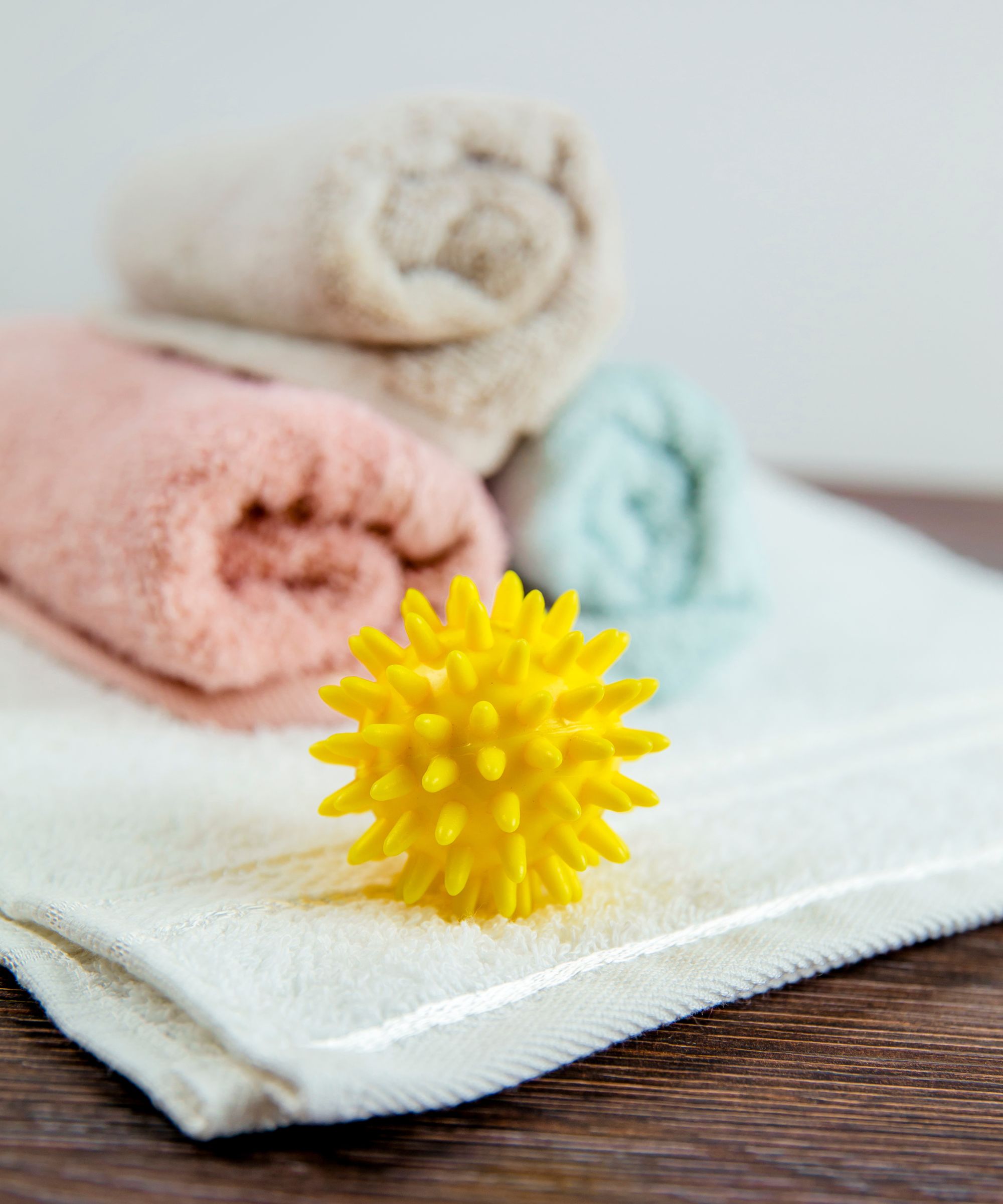
1. They help to reduce stubborn lint and hair
If you are tired of trying to remove lint from clothes or get rid of pet hair from laundry even after a thorough wash, then switching to dryer balls from dryer sheets may be the solution, explains Frej Lewenhaupt, textile expert, CEO, and co-founder of Steamery.
‘Reusable dryer balls, especially ones made of wool, are great to use when you need to tumble dry your laundry quickly. Tumble dryer balls help separate your garments and loosen stubborn lint and hair stuck to your clothes by reducing static and increasing airflow in your machine as it runs,’ he says.

Frej Lewenhaupt is a dedicated and creative Co-founder & CEO with a demonstrated history of working with design which he uses to design the best, most effective clothing care devices for household use.
2. They reduce wrinkles
Ironing is arguably the least fun part about doing laundry (other than having to put it all away, of course) so cutting out the middleman and reducing wrinkles during the laundry cycle itself is a life changer. Luckily, dryer balls can do just that, assures Deyan Dimitrov, CEO, and laundry expert at LaundryHeap.
‘The added weight and size of dryer balls helps in keeping constant movement during the dryer cycle, so no clothes or linens have the chance to ball up into a wrinkly mess,’ he explains. ‘They prevent fabrics from sticking together, thereby minimizing the occurrence of static and resulting in fewer hard-to-remove wrinkles.’
3. They speed up drying times
One of many laundry hacks that save time, using dryer balls can help to improve the efficiency of your tumble dryer, drying your clothes more quickly and saving money on energy bills – you can even see the difference when you use them in the best clothes dryers.
Again, this magical power is to do with the dryer ball’s ability to improve airflow between your clothing in your dryer, shares Melissa Caverly, professional cleaner and founder of ImagineMaids.
‘This increased airflow allows the hot air to circulate more efficiently, resulting in faster drying times. By reducing the time spent in the dryer, you can save energy and potentially lower your utility bills over time – it is a win-win in my eyes.’
4. They’re safe for all fabrics
There is always something a little worrisome about washing a garment for the first time, but dryer balls can help to take some of the mystery out of laundry cycles, says Deyan Dimitrov, laundry expert.
‘One of the most significant advantages of using dryer balls is their compatibility with all types of fabrics. Whether you're drying delicate lingerie, sturdy denim, or plush towels, dryer balls are safe to use across the board. They eliminate the need for separate fabric softeners or dryer sheets tailored to specific fabric types, simplifying your laundry routine – so you don't have to pay too much attention to all those confusing laundry symbols, just so long as you get your drying temperature right.’
5. They make your laundry cycle more sustainable
Washing clothes has one of the biggest impacts on our carbon footprints than many other activities in our homes, which is made worse given that it’s an essential we can’t really go without. As a result, looking for ways to make our laundry a little more eco-friendly is a must, and this is where dryer balls come in to save the day once again, says Lindsey Chastain, founder of the sustainable home blog, The Waddle and Cluck
‘All of the benefits of dryer balls, from enhanced airflow reduced drying time, minimized static cling, and softening your laundry naturally all contribute to being more sustainable at home as we do not need to dry for longer, or turn on the iron or steamer after a wash,’ she says. ‘What's more, unlike dryer sheets and fabric softeners, dryer balls are not coated in chemicals that leave residue on your clothes, making them an excellent choice for those with sensitive skin or allergies and reducing how often you have to rewash them to make them feel clean again.’
It also helps if you wash your clothes in cold water with the help of a detergent designed to remove spoilage and bacteria in cooler temperatures, such as Tide, available at Walmart.
XL Wool Dryer Balls | $23.99 at Amazon
Using wool dryer balls saves time, money, and energy during your laundry cycle. Use three laundry dryer balls for small/medium loads, and five to six for large.
FAQs
How do you use dryer balls for the first time?
When using dryer balls for the first time, especially if they are made from a porous material such as wool, it can help to spray them down with water (mixed with a few drops of essential oil if you want to add some fragrance to your clothing). Saturating them until they feel damp to the touch will help them to produce a little extra steam in the dryer, removing wrinkles in your clothing so you don't have to iron.
How often can you use dryer balls?
How many times you can use your dryer balls will depend on the material they are made out of. Plastic dryer balls are unlikely to deteriorate given their unwieldy materials, whereas wool dryer balls are likely to start degrading over time – especially with heavy usage. For this reason, you will possibly have to look at replacing your wool dryer balls every 100-150 laundry cycles or so, while plastic options could, theoretically, last forever.
Dryer balls are a wonderful addition to your laundry routine and are a great first step into shopping sustainably for your home. Better yet, stacked neatly in a decorative glass jar, they can even act as a practical decor piece for your laundry rooms, and are far more aesthetic looking than a banded back of dryer sheets thrown to the back of a shelf – there isn't much not to like.
Sign up to the Homes & Gardens newsletter
Design expertise in your inbox – from inspiring decorating ideas and beautiful celebrity homes to practical gardening advice and shopping round-ups.

Chiana has been at Homes & Gardens for two years and is our resident 'queen' of non-toxic living. She spends most of her time producing content for the Solved section of the website, helping readers get the most out of their homes through clever decluttering, cleaning, and tidying tips. She was named one of Fixr's top home improvement journalists in 2024.
-
 These are the 6 must-have colors to decorate with in April 2025
These are the 6 must-have colors to decorate with in April 2025What do retro-inspired yellows and beautiful blues all have in common? They're on our hot list for the season ahead
By Sophia Pouget de St Victor Published
-
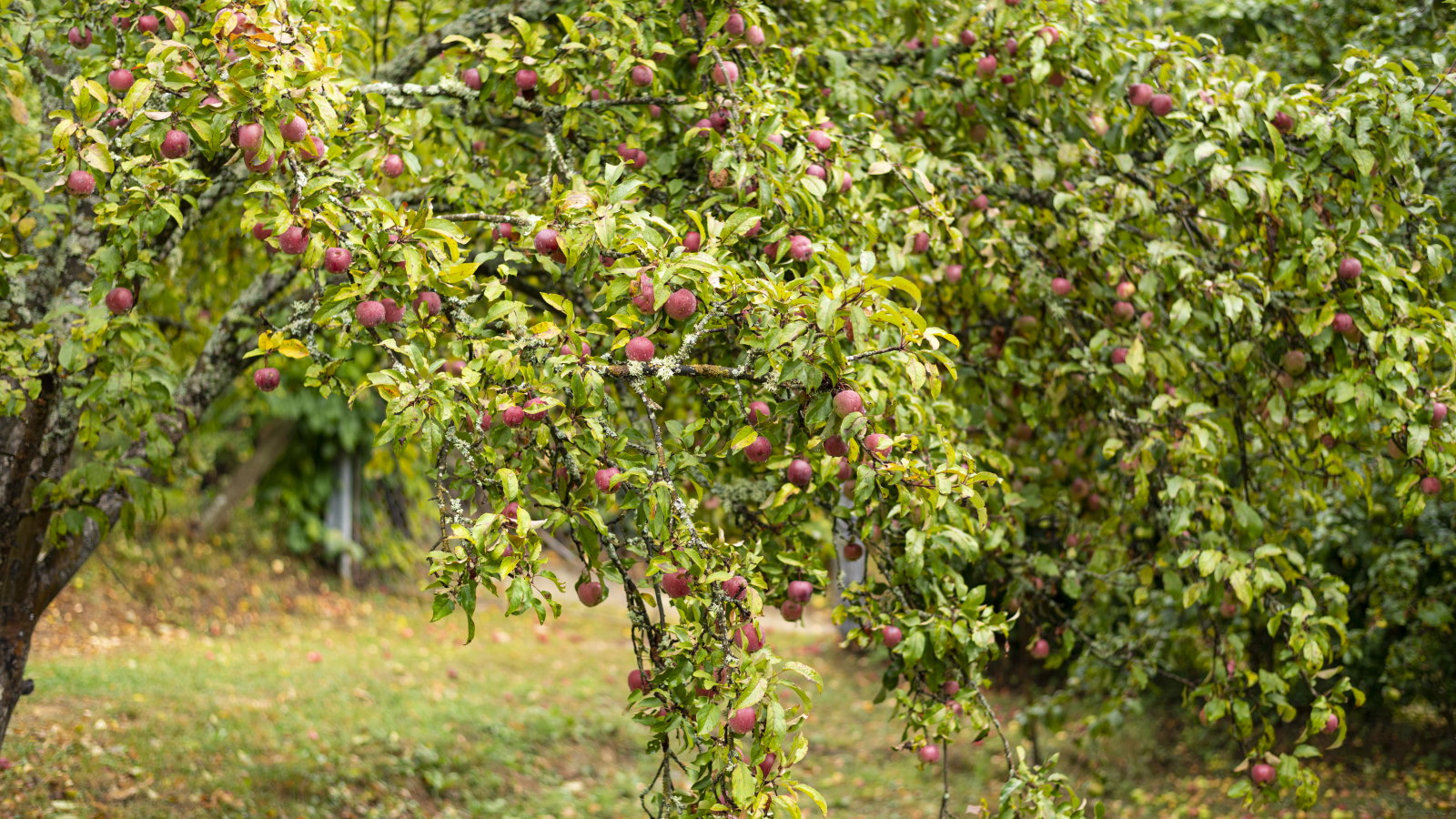 Plants never to grow next to fruit trees
Plants never to grow next to fruit treesExpert advice on which plants to keep away from fruit trees to encourage a healthy harvest
By Jacky Parker Published
-
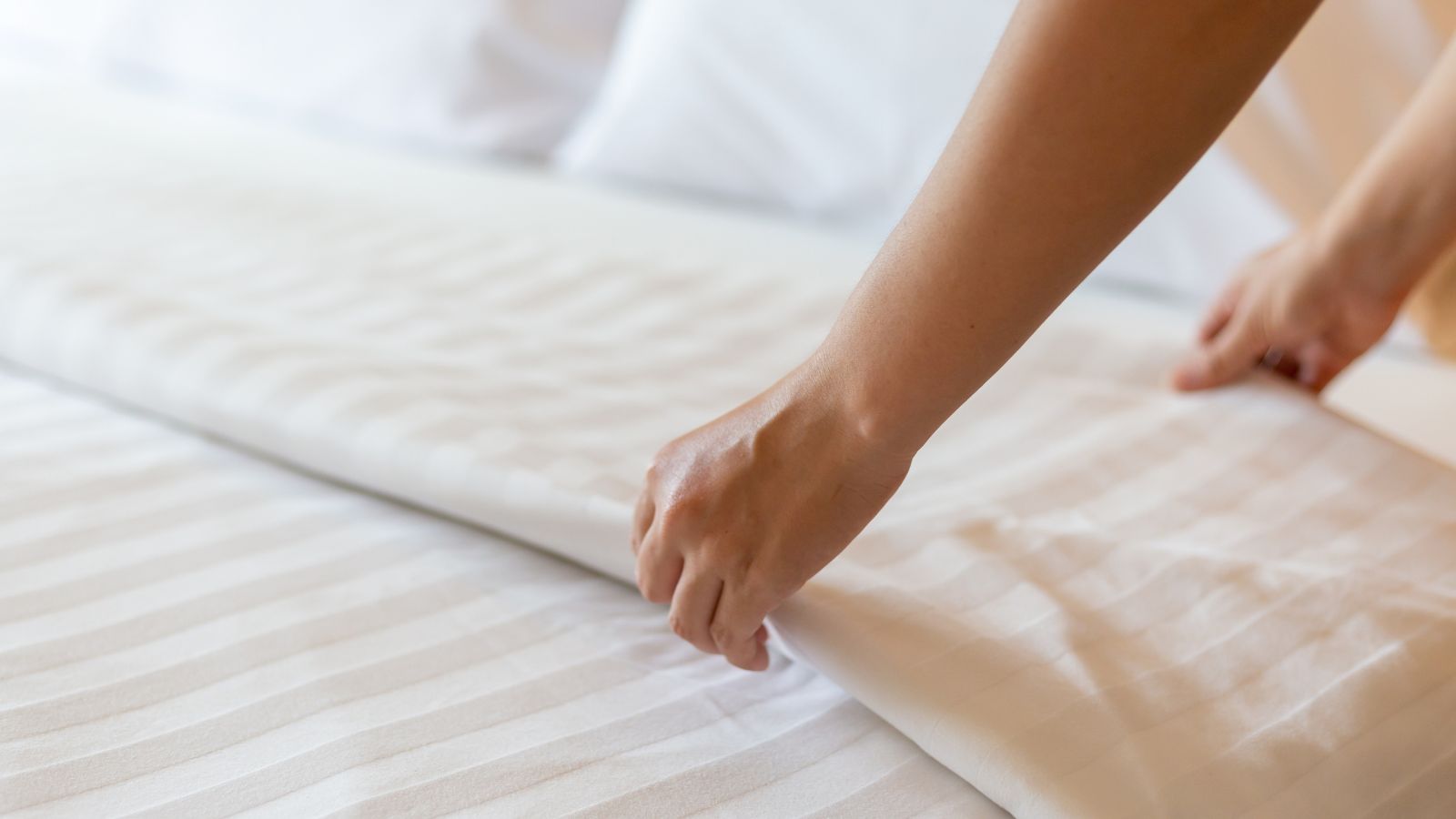 How to manage laundry when you have overnight guests – 4 expert tips from a fabric care scientist
How to manage laundry when you have overnight guests – 4 expert tips from a fabric care scientistFabric care scientists share their tips for managing laundry when you have overnight guests, both before they arrive and after they have left
By Chiana Dickson Published
-
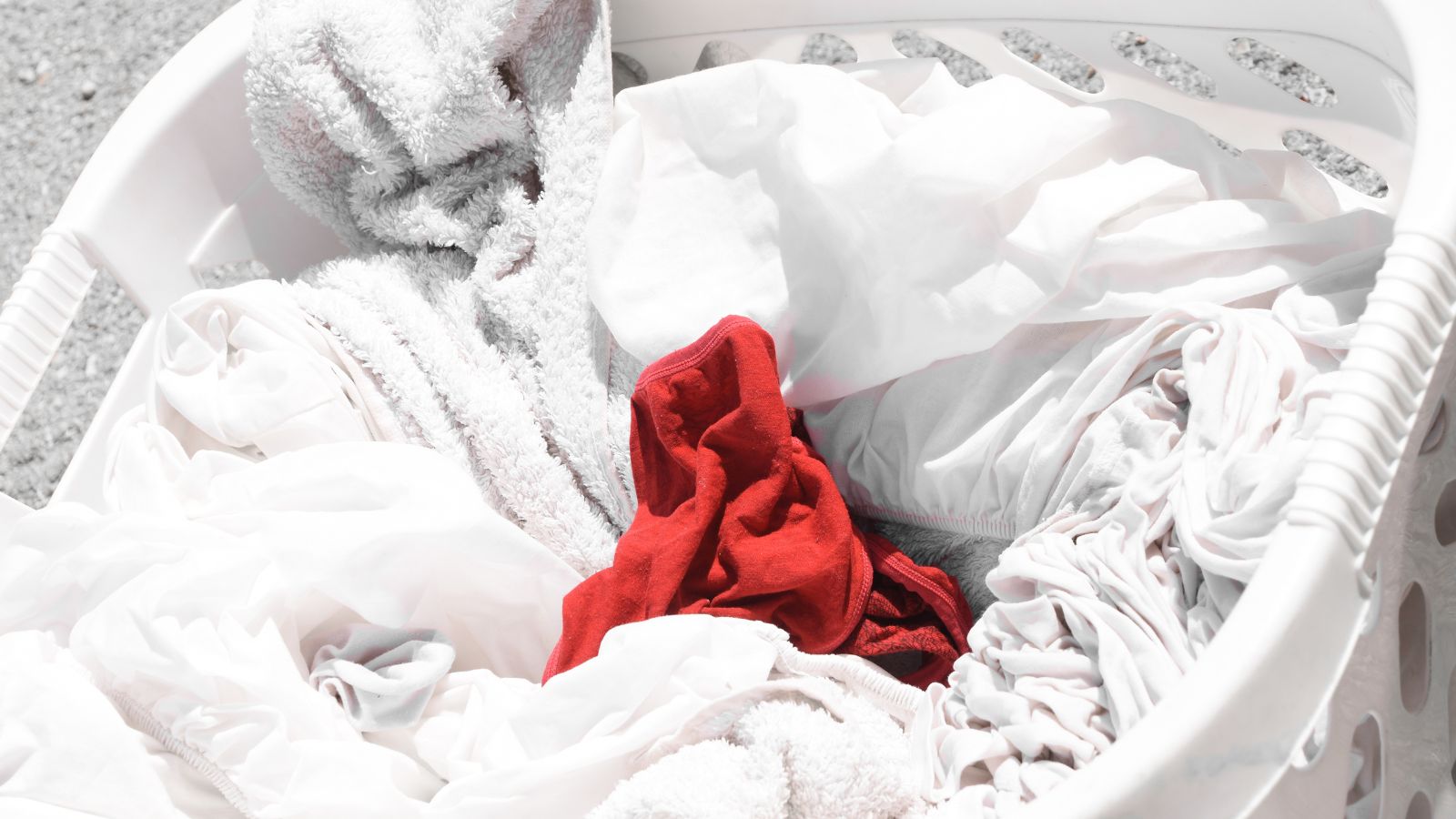 How can you get pink out of white clothing? Laundry experts share their solutions for color-bleeding
How can you get pink out of white clothing? Laundry experts share their solutions for color-bleedingLaundry experts share their tips for getting pink dye out of white clothing to restore well-loved garments to their original crisp color
By Chiana Dickson Published
-
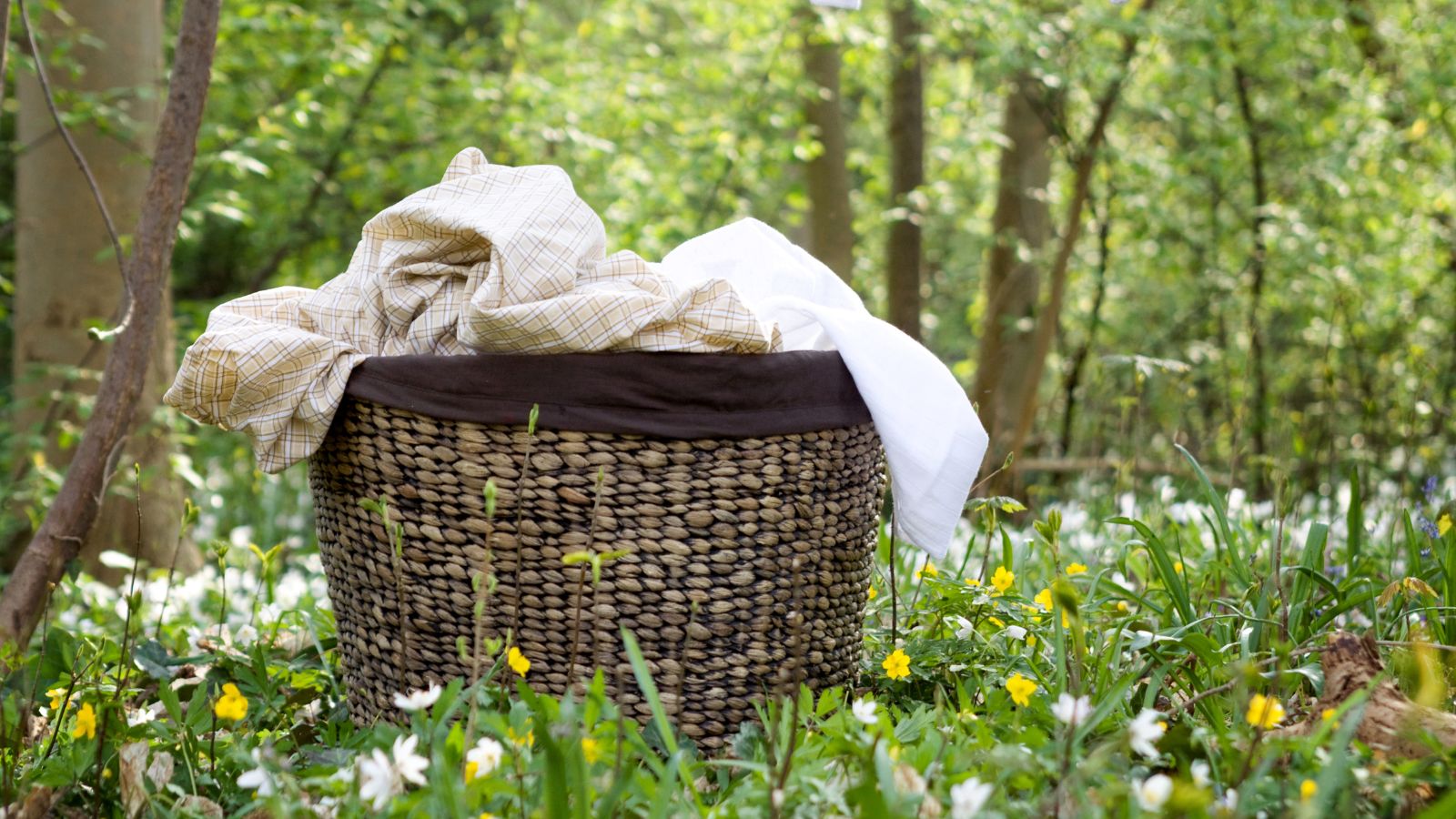 How to remove pollen stains from fabric – expert tips from Tide’s laundry expert
How to remove pollen stains from fabric – expert tips from Tide’s laundry expertWe sat down with a laundry scientist to learn his tips for removing pollen stains from fabric quickly and easily for fab-looking clothing and reducing allergy symptoms this summer
By Chiana Dickson Published
-
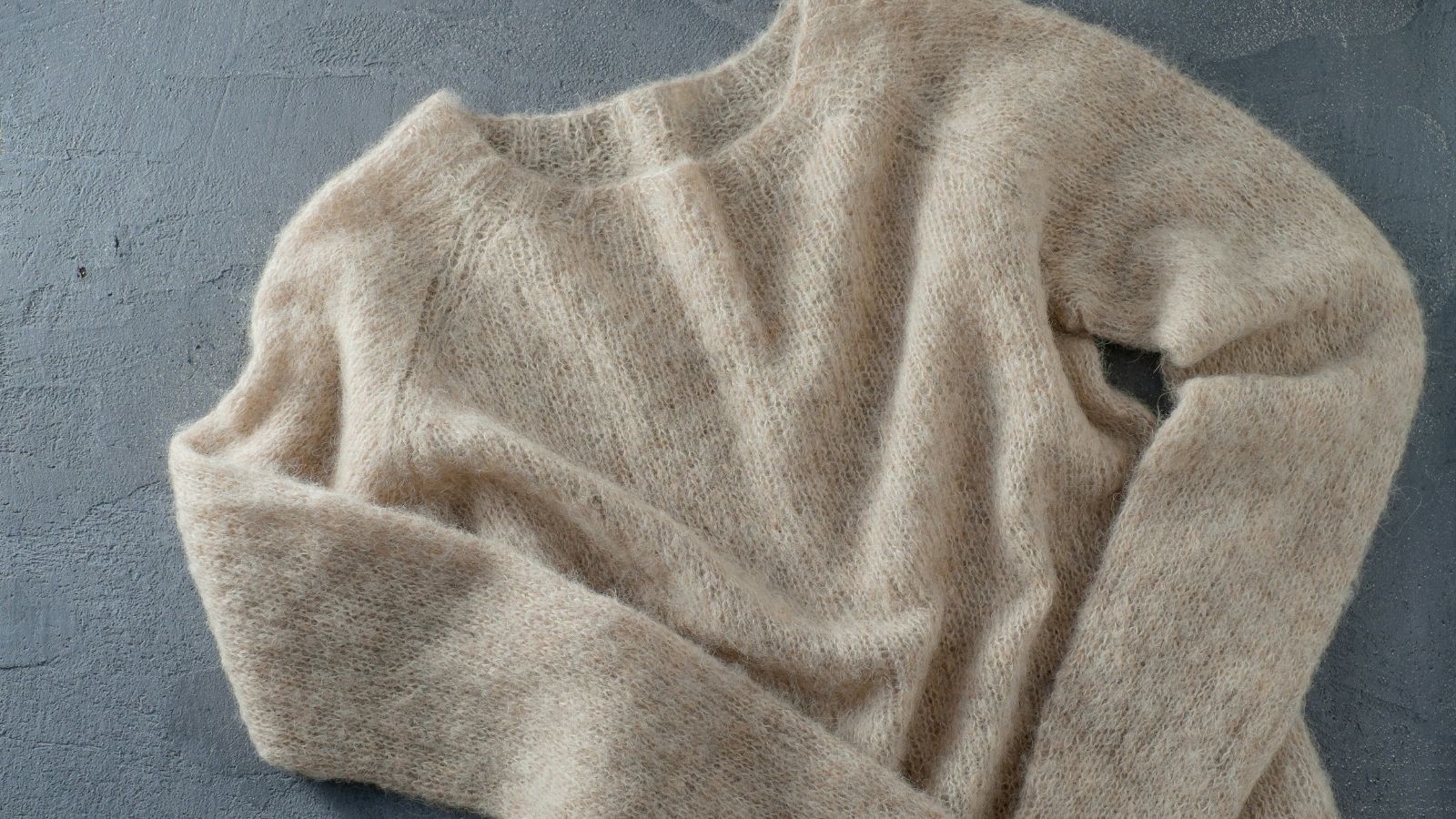 How to make a wool sweater less itchy – 4 steps I use to treat natural fibers
How to make a wool sweater less itchy – 4 steps I use to treat natural fibersWe explain how to wash a wool jumper by hand to prevent itchy fibers from rendering the garment unwearable in a process that can also be used for wool throws
By Chiana Dickson Published
